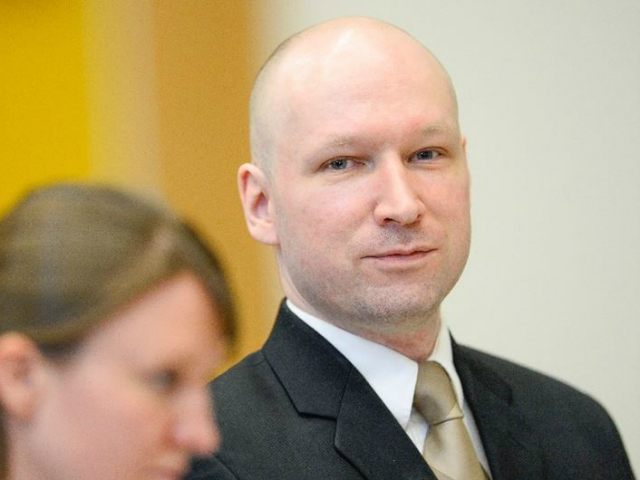Right-wing extremist Anders Behring Breivik, who killed 77 people in Norway in 2011, will take the stand Wednesday to testify about his prison isolation on the second day of his lawsuit against the Norwegian state.
Three hours have been set aside in the morning for Norway’s most infamous inmate, who has previously decried his prison conditions as “torture” though they are considered more than comfortable by many.
In a highly anticipated moment, Breivik will make his first public statement since he was sentenced in 2012 to 21 years behind bars — a sentence that can be extended if he is still considered dangerous — for the bloodbath he committed on July 22, 2011.
He killed eight people in a bomb attack outside a government building in Oslo and then murdered another 69 people, most of them teenagers, in a rampage at a Labour Youth camp on the island of Utoya.
His shooting spree lasted an hour and 13 minutes, as he methodically stalked and killed many of the 600 up-and-coming leaders of Labour, Norway’s dominant political party, which he blamed for the rise of multiculturalism.
He finished many of his victims off with a bullet to the head.
Out of respect to the families of the victims and the survivors, and to prevent him from sending any coded signals to his supporters, the 37-year-old extremist’s testimony will not be broadcast on television like the rest of the proceedings, justice authorities have ruled.
On Tuesday, his only statement was in response to a call to order by judge Helen Andenaes Sekulic, who asked him to refrain from making a Nazi salute as he arrived at the opening of the trial.
“I will try to take that into account,” replied Breivik, appearing with a shaven head, after objecting that it had been a Norse salute, a claim yet to be verified.
For security reasons, the proceedings are being held in the gymnasium of the Skien Prison in southern Norway where he is currently imprisoned.
He has access to three cells — one for living, one for studying and a third for physical exercise — as well as a television, a computer without Internet access, a games console, books and newspapers, and puzzles. He is able to prepare his own food and do his own laundry, according to state representatives.
His conditions are seen as rather comfortable, albeit apart from other inmates, but he considers them unsatisfactory.
– Avoiding ‘a new Breivik’ –
He has accused the state of breaching two clauses of the European Convention on Human Rights, one which prohibits “inhuman or degrading treatment or punishment”, and one which guarantees the right of respect for “private and family life” and “correspondence”.
The case is seen as a new test for Norway’s legal system, as the country tries to forget the name of the perpetrator behind the deadliest carnage on its soil since World War II.
His lawyer has called his almost five-year isolation “inhuman” and left him suffering “clear damage”, citing memory loss and an inability to focus on his political science studies.
The frequent use of handcuffs and hundreds of strip-searches while Breivik was placed in the Ila prison near Oslo until September 2013 constituted “degrading” treatment, he said.
Prison officials also censor all his mail, the lawyer said.
Thehe lawyers defending the state, Marius Emberland and Adele Matheson Mestad, countered each argument point by point during Tuesday’s proceedings.
Listing the activities offered to Breivik, some of which he has declined, Emberland described a prisoner in relatively good shape, held in conditions “well within the limits of what is permitted” under the Convention.
He also stressed the risks both Breivik and the other inmates would face if Breivik were to be allowed to mix with them.
“Breivik is an extremely dangerous man,” Emberland said, noting he was not deprived of human contact and did interact with others, notably prison staff.
Mestad also said the censorship of his mail — around 600 of 4,000 letters have been seized and others have been partially censored — was needed to prevent exchanges with supporters that could yield “a new Breivik”.

COMMENTS
Please let us know if you're having issues with commenting.